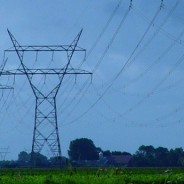Power Market Complexity

A very good blog by James Bushnell highlights the complexity of the electric markets. There are areas that Dr. Bushnell and I will diverge in the article, but I like the fact that he brings two major themes into the blog – the electric market construct and the technical issues of running the electric system.
The electric market construct, in terms of regulation and deregulation is the topic I have discussed many times particularly in my December 2011 blog Regulation vs. De-regulation. Based on the comments and new information I have received, I still believe that regulation is likely the most robust path for society when it comes to electricity. Dr. Bushnell noted even in regulated form, there will be energy trading as he points out “it usually doesn’t make sense for them to generate it all themselves”. This is true, but IF the market was regulated, this volume would be substantially less and the ability to rig or game the system will be limited. The key issue for regulation is the governing bodies of the regulated institution. Will they be properly compensated to be highly educated on the issues and to avoid any potential regulatory capture? As I noted in my previous blog, this is much easier to manage than to deal with abundance of complicated trade structure and high powered attorneys.
Dr. Bushnell is correct in highlighting the commitment issues in dispatching power plants. Dr. Bushnell seems to have miss-portrayed the historical dispatch mechanism. He noted, “ the California power exchange took bids for price and quantity, but not much else…” First of, California certainly is not the best representation of how electricity was managed. However, beside that point, typically in the days before regional transmission organization (RTO) – most of the utilities were somewhat regulated. They would generate power based on their OWN loads before accounting for other opportunities. The jump to supply, not only your own load that causes this variation that you cannot manage very well. This is the issue of ramping and turning on and off as Dr. Bushnell alluded to “…The fact that a price solution coming out of a computer program did not explicitly model them did not mean that the costs were not represented in the prices. Its just that they were the problem of the plant owners, who had to figure out how to best operate their plants to meet the sales orders being produced by the market.” If you just managed your own load you will eventually understand it and build and operate generation resources for that particular profile.
In addition, if you did operate wrongly in the old model you got paid anyway since it was all cost past through, so it was not really the plant owners problem. However, by operating more effectively, you will reduce ratepayer cost which will allow for more investments in the future. By accepting off-system sales and purchases, it adds the nuance which requires a “centralized” optimizer – RTO. This was the first step in de-regulation and allowing the independent power producers – such as JP Morgan – to begin their conquest.
Before I wrap up, I will have to disagree on this last point where he refers to the electricity market as complex, but so are other areas and then names Refining as an example. I believe I am perfectly situated to compare these two industries given my significant and successful experience in both these industry. Dr. Bushnell background does not seem to show enough substance to compare these two industries. To the dismay of many of my Oil & Gas colleagues, I will state that the electric markets are, by far much more complex than anything in the Oil & Gas industry. The simple physics of electricity makes this so. You cannot store electricity in any significant volume. You cannot even think about managing it just in time (JIT) – it has to be all the time.
If a gasoline station runs out of its inventory, the consumer can drive to another gas station or worse walk there with a container. In the case of the electric world, if there is any imbalance with demand and supply the whole grid may shut down. At this point, there is no walking down to the next station. It will take a coordinated effort to restart the grid. Hence, there is a lot of complexity within the electric markets that need to be considered. I will not get into the numerous governing bodies that get themselves involved into electricity. Where are the low-income gasoline subsidies?
In the past, the markets had limited computer power therefore much shortcuts were done. They did the best with what they have. Now computer power has progressed much. We could decide to keep it simple and manage it with the shortcuts or we can take advantage of what technology has to offer with all its latest computing skills and start making better real-time decision. The abuse of trading is not from this step, but from the step of de-regulating the markets without enough enforcements and pragmatic thinking of rules and regulations. Many of the de-regulating bodies captured the process and found all the loop holes similar to the tax code development.
In wrapping up, I am very grateful for Dr. Bushnell in bringing up the complexities in the electric markets. Decentralized decision making was done because the market was decentralized. To try to have decentralized thinking in a centralized market is like having your cake and eating it to. No doubt garbage in is garbage out. Assuming we don’t restructure the market but continues its current form. We need better governing bodies to throw out the trash before it happens, not when it is in the system or after the fact per the JP Morgan case.
Your Energy Consultant,
614-356-0484

